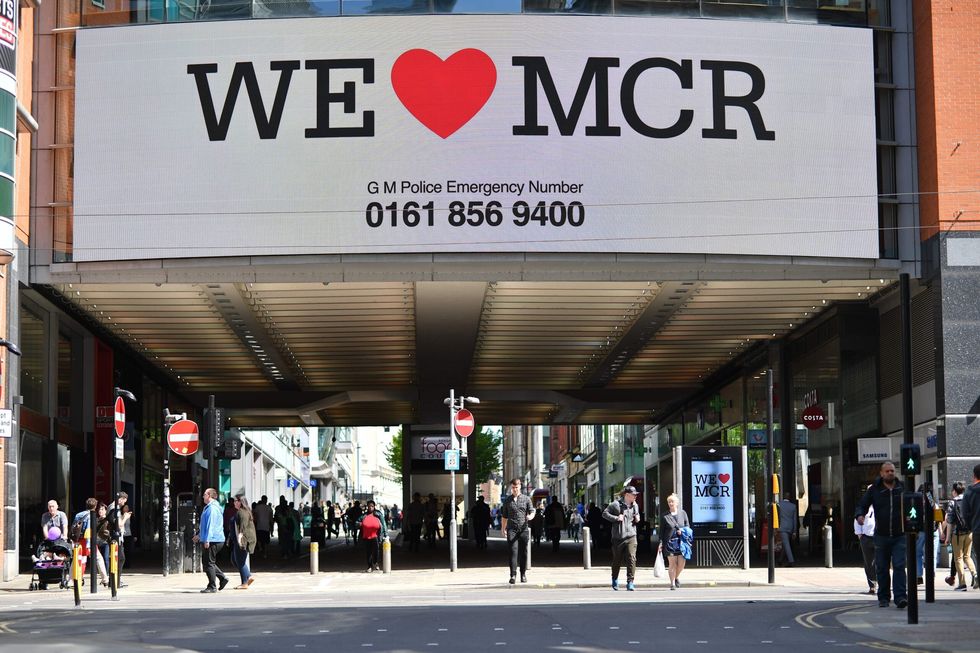SOCIAL media firms have been urged to do more to tackle conspiracy theories and false information being posted on their platforms.
These include messages and videos speculating about tragedies such as the Jallianwala Bagh massacre in 1984 and the 2017 Manchester Arena bombings.
There are also false allegations about vaccines, the Princess of Wales’s health after she revealed her cancer diagnosis, and about prime minister Rishi Sunak.
The new Online Safety Bill requires social media platforms to remove illegal content quickly or prevent it from appearing in the first place, enforce age limits and age-checking measures, ensure the risks to children are more transparent, and provide parents and users with clear ways to report problems online. However, experts fear it may not focus enough on addressing misinformation.
Kamran Uddin, a tech writer specialising in Artificial Intelligence (AI), said social media has blurred the lines on news, and coupled with AI voice cloning and deep fakes, “it’s a recipe for disaster.”
He told Eastern Eye: “At the height of Covid, I was seeing lots of propaganda against taking the jab and how it would somehow control people and brainwash people. Recently, I was exposed to conspiracy theories about the royal family after a photo of Kate Middleton and her children was clearly edited. You do have to sometimes wonder if the big tech companies are doing enough to combat such absurd propaganda being filtered through their platforms. I’m hoping the Online Safety Bill does get these companies to toughen up their act as the lives of our future generations depend on it.”
Hamza Mudassir, a fellow at Cambridge University’s Judge Business School, told Eastern Eye the Online Safety Bill’s focus “remains primarily on child safety, rather than curtailing conspiracy theories.”
He added: “Given the delicate balance between moderating ‘fake news’ and upholding freedom of speech, significant changes in this area seem unlikely soon.”
Other conspiracy theories found online include accusations against the mayor of London Sadiq Khan and governments “poisoning our food, water, air.”
Mudassir added: “In the age of social media, the rapid spread of misinformation is a significant challenge. Platforms, designed to encourage interaction, can inadvertently amplify unverified claims, as stopping this flow could hinder user experience and profitability.
“Moderators and a blend of algorithms and user reports attempt to manage viral content, with some platforms, like X’s community notes, innovating through crowd-sourced fact-checking. This creates a continual tug-of-war for social media companies: balancing the free spread of diverse voices against the need to restrain controversial misinformation. It is unlikely that this dynamic will change.”

London mayor Khan said last summer he did not expect people to be “linking my policies to cleaning up the air with conspiracy theories” regarding the Ultra Low Emission Zone scheme, a daily charge which aims to improve air quality.
Previous research suggested that 14 per cent of the UK public said it’s definitely or probably true that the Manchester Arena bombing involved “crisis actors” who pretended to be injured or dead and there were no casualties.
One in eight claimed it’s definitely or probably true that the 7/7 attacks in London were probably a hoax, while 26 per cent believe it’s definitely or probably true the mainstream media and government officials are involved in a conspiracy to cover up important information about the attack at the Manchester Arena, the study by Policy Institute at King’s College London found.
The analysis in 2022 also found that beliefs in terror-related conspiracy theories were higher among the younger generation as well as those who consumed much of their news from social media.
Recent research by the Center for Countering Digital Hate found that some AI image generators create election disinformation in 41 per cent of cases, including images that could support false claims about candidates or election fraud.
It included fake but convincing images of US president Joe Biden lying in a hospital bed and Donald Trump sitting in a prison cell.
Imran Ahmed, founder of Center for Countering Digital Hate, said: “One of the biggest myths about social media is that it reflects the voice of the people. It doesn’t.
The platforms have learned over time that what really keeps people addicted is controversy, conspiracy theories and outrage that creates a negative emotional reaction.
So they pump those conspiracies into our timelines, at the expense of authentic news. It’s time we had transparency from social media platforms to hold them accountable.”
Meta, which owns both Facebook and WhatsApp, works with 80 third-party factchecking organisations.
Posts rated as false by these organisations have their reach reduced so fewer users can see them. X, formerly Twitter, was contacted for comment.

















 Kulsuma Aktergetty images
Kulsuma Aktergetty images
Police may probe anti-Israel comments at Glastonbury